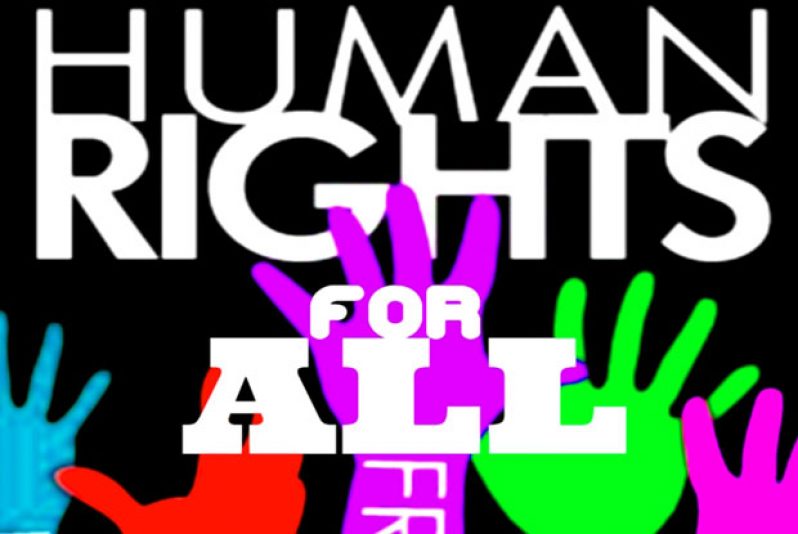In the 1930s Paul Robeson (1898-1976) was one of the best known and most widely acclaimed African Americans. He was born in Princeton, New Jersey in 1898. His father was a former slave who became the religious leader of a Protestant church and his mother was from a prominent Quaker family of mixed ancestry. Robeson was an excellent student and athlete and Rutgers University in New Jersey gave him a scholarship so he could study there. He played four different sports while at Rutgers and was also was the top student in his class. Members of his class believed Paul Robeson would become the leader of black people in America.
He graduated in 1919 and then attended law school at Columbia University in New York City. He was only the third black person to attend Columbia Law School. On the weekends, he earned money by playing professional football. He also acted in plays. He married Eslanda Cordoza Goode while he was in law school. After he graduated in 1923, he got a job with a group of lawyers in New York but left after experiencing unfair treatment because he was black. He decided not to work as a lawyer. Instead, he wanted to use his ability in theatre and music to support African American history and culture.
Robeson became a professional actor. He joined the Provincetown Players, an acting group linked to American playwright Eugene O’Neill. Robeson was the star in two famous productions by Eugene O’Neill in the1920s. They were “All God’s Chillun Got Wings” and “The Emperor Jones.” Critics praised his performances. Robeson became the most recognized black actor of his time.
In London he earned international praise for his leading part in William Shakespeare’s great tragic play, “Othello.” That was in1930. Thirteen years later, he played “Othello” on Broadway in New York. It was very popular.
Paul Robeson also was famous for appearing as a riverboat worker in the popular American musical play “Show Boat”. He performed the play in London in 1928 and on Broadway four years later.
He appeared in 11 movies in the 1920s and 1930s. However, he realised that his acting was limited by the small number of parts for black actors and criticised the American movie industry for not showing the real lives of black people in America. He stopped making movies and decided to sing professionally instead.
Robeson sang many kinds of music. He sang folk music from many countries. He sang songs to support the labour and social movements of his time. He sang songs for peace and justice. And, he sang African American spiritual music. One of his famous songs was this spiritual, “Balm in Gilead.”
He travelled a great deal in Europe during the 1930s and found that Black people were treated better in Europe than in the United States. He met members of liberal political organisations, socialists and African nationalists. He also met many working people and poor people.
In the late 1930s Robeson became involved in national and international movements that sought peace and better labour conditions. He also supported independence for African colonies from their European rulers. He learned the languages and folk songs of other cultures, saying that these folk songs expressed the same feelings that were in African American music. He learned to speak, write and sing in more than 20 languages using his deep baritone voice to promote Black spirituals, to share the cultures of other countries, and to benefit the labour and social movements of his time.
Robeson became known as a citizen of the world, equally comfortable with the people of Moscow, Nairobi, and Harlem. For many years he performed in concerts in many countries. The songs he sang supported the struggle for racial justice for Black Americans, and for civil rights and economic justice for people around the world. He refused to perform at concerts where the people were separated by race. He said: “The idea of my concerts is to suggest that all men are brothers because of their music.”
In 1934, Paul Robeson made the first of many trips to the (former) Soviet Union. In the Soviet Union, he said, he was treated as an equal of whites for the first time in his life. He declared his friendship for the Soviet Union. And he spoke about the need for peaceful co-existence between the United States and the Soviet Union. Conservative groups in the United States strongly opposed his friendship with the Soviet Union and his support for other liberal issues.
In the 1940’s, many people in the United States were strongly opposed to his advocacy of anti-imperialism, affiliation with communism, and his criticism of the US government caused him to be blacklisted.
In 1950, the U.S. revoked Robeson’s passport, leading to an eight-year battle to re-secure it and to travel again. During those years, Robeson studied Chinese, met with Albert Einstein to discuss the prospects for world peace and published his autobiography, Here I Stand, and sang at Carnegie Hall. Two major labour-related events took place during this time. In 1952 and 1953, he held two concerts at Peace Arch Park on the U.S.-Canadian border, singing to 30-40,000 people in both countries.
In 1957, he made a transatlantic radiophone broadcast from New York to coal miners in Wales. In 1960, Robeson made his last concert tour to New Zealand and Australia. In ill health, Paul Robeson retired from public life in 1963. He died on January 23, 1976, at age 77, in Philadelphia.
Sources:
1. http://www.cpsr.cs.uchicago.edu/robeson/bio.html,www.
2. http://learningenglish.voanews.com
3. http://en.wikipedia.org/wiki/Paul_Robeson
Researched by Michelle Gonsalves
Paul Robeson: Singer, Actor, and Civil Rights Activist
SHARE THIS ARTICLE :
Facebook
Twitter
WhatsApp




.png)









